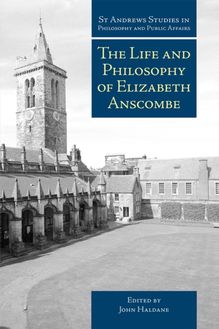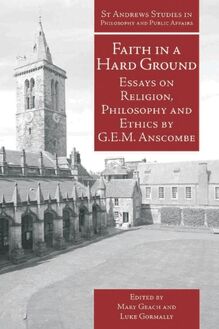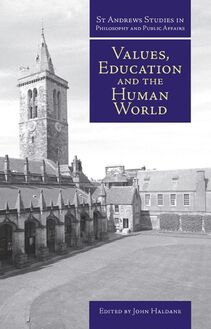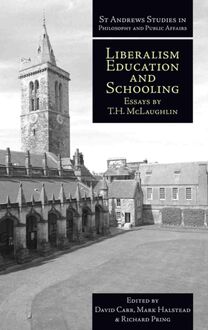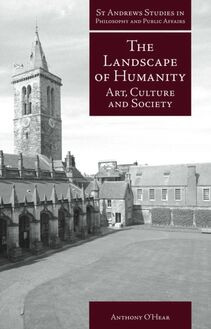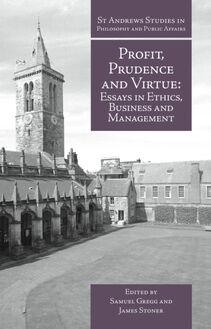-
 Univers
Univers
-
 Ebooks
Ebooks
-
 Livres audio
Livres audio
-
 Presse
Presse
-
 Podcasts
Podcasts
-
 BD
BD
-
 Documents
Documents
-
- Cours
- Révisions
- Ressources pédagogiques
- Sciences de l’éducation
- Manuels scolaires
- Langues
- Travaux de classe
- Annales de BEP
- Etudes supérieures
- Maternelle et primaire
- Fiches de lecture
- Orientation scolaire
- Méthodologie
- Corrigés de devoir
- Annales d’examens et concours
- Annales du bac
- Annales du brevet
- Rapports de stage
La lecture à portée de main
Vous pourrez modifier la taille du texte de cet ouvrage
Découvre YouScribe en t'inscrivant gratuitement
Je m'inscrisDécouvre YouScribe en t'inscrivant gratuitement
Je m'inscrisEn savoir plus
Vous pourrez modifier la taille du texte de cet ouvrage
En savoir plus

Description
Sujets
Informations
| Publié par | Andrews UK |
| Date de parution | 04 octobre 2011 |
| Nombre de lectures | 0 |
| EAN13 | 9781845402655 |
| Langue | English |
Informations légales : prix de location à la page 0,0674€. Cette information est donnée uniquement à titre indicatif conformément à la législation en vigueur.
Extrait
Title Page
VALUES, EDUCATION AND THE HUMAN WORLD
Essays on Education, Culture, Politics, Religion and Science
Edited and Introduced by John Haldane
Publisher Information
Copyright © Imprint Academic, 2004
The moral rights of the authors have been asserted.
No part of any contribution may be reproduced in any form without permission, except for the quotation of brief passages in criticism and discussion.
Originally published in the UK by Imprint Academic
PO Box 200, Exeter EX5 5YX, UK
Originally published in the USA by Imprint Academic
Philosophy Documentation Center
PO Box 7147, Charlottesville, VA 22906-7147, USA
Digital version converted and published in 2011 by
Andrews UK Limited
www.andrewsuk.com
Cover Photograph:
St Salvator’s Quadrangle, St Andrews by Peter Adamson
from the University of St Andrews collection
Notes on the Contributors
Bryan Appleyard has been a columnist on The Times and The Independent and currently writes for The Sunday Times . In 1986 he was ‘Feature Writer of the Year’ and in 1992 he was ‘Commended Feature Writer’. His many books include The Culture Club (1984), The Pleasures of Peace (1989), Understanding the Present - Science and the Soul of Modern Man (1992) and Brave New Worlds: Staying Human in the Genetic Future (1998).
David Carr is Professor of Philosophy of Education in the University of Edinburgh. He is the author of Educating the Virtues (1991), Professionalism and Ethical Issues in Teaching (2000) and Making Sense of Education (2003). He is also editor of Education, Knowledge and Truth (1998) and co-editor of Virtue, Ethics and Moral Education (1999) and (with John Haldane) of Spirituality, Philosophy and Education (2003).
John Haldane is Professor of Philosophy in the University of St Andrews where he is also Director of the Centre for Ethics, Philosophy and Public Affairs. He has also held positions at other universities, including the Royden Davis Chair of Humanities at Georgetown University, DC. He is the author (with J.J.C. Smart) of Atheism and Theism, Second Edition (2003), An Intelligent Person’s Guide to Religion (2003), Faithful Reason (2004), and editor of Philosophy and Public Affairs (2000) and other volumes.
Mary Midgley was a member of the philosophy department at the University of Newcastle but she is best known as a columnist and broadcaster and as the author of a number of books on various moral questions, including Heart and Mind (1981), Evolution as a Religion (1985), Wisdom, Information and Wonder (1989), Science as Salvation (1992), Utopias, Dolphins and Computers (1994), Animals and Why They Matter (1998) and The Myths We Live By (2003). The arguments presented in her Cook lectures are further developed in Science and Poetry (2001).
Anthony O’Hear was formerly Professor of Philosophy in the University of Bradford and is currently Weston Professor of Philosophy in the University of Buckingham. He is Director of the Royal Institute of Philosophy and editor of its journal Philosophy. His many books include The Element of Fire: Science, Art and the Human World (1988), Introduction to the Philosophy of Science (1989), Beyond Evolution: Human Nature and the Limits of Evolutionary Explanation (1997), After Progress (1999) and Philo s ophy in the New Centur y (2001).
Richard Pring is a Fellow of Green College and former Professor of Educational Studies and Director of the Department of Educational Studies, in the University of Oxford. He has also been editor of the British Journal of Educational Studies . His publications include the following: Closing the Gap: Liberal Education and Vocational Preparation (1995), Knowledge and Schooling (1976), The New Curriculum (1989), Knowledge and Schooling (1996), Philosophy of Educational Research (2000) and The Philosophy of Education (2004).
Anthony Quinton (Baron Quinton of Holywell) was a fellow of All Souls and New College before becoming President of Trinity College, Oxford. He has also been Chairman of the British Library. His many publications include Utilitarian Ethics (1974), The Nature of Things (1978), The Politics of Imperfection (1982), Thoughts and Thinkers (1982), Hume (1997) and From Wodehouse to Wittgenstein (1998).
Jonathan Sacks was the first holder of the Chair in Modern Jewish Thought at Jews College, London and subsequently became Principal of the College. In 1991 he was appointed Chief Rabbi of the United Hebrew Congregations of the Commonwealth. In 1990 he delivered the Reith Lectures on the theme of The Persistence of Faith. The arguments presented in his Cook lectures are further developed in The Politics of Hope (1997). His other books include The Dignity of Difference: How to Avoid the Clash of Civilisations (2002) and From Optimism to Hope (2004).
Stewart Sutherland (Lord Sutherland of Houndwood) has been Principal of King’s College London, Vice-Chancellor of London University, HM Chief Inspector of Schools, and Principal and Vice-Chancellor of the University of Edinburgh. He is also President of the Royal Society of Edinburgh and Chairman of the Council of the Royal Institute of Philosophy. He was formerly editor of Religious Studies and co-edited The Philosophical Frontiers of Christian Theology (1982). His own publications include Atheism and the Rejection of God (1977), Faith and Ambiguity (1984), and God, Jesus and Belief: The Legacy of Theism (1984),
Mary Warnock (Baroness Warnock of Weeke in the City of Winchester) was formerly Mistress of Girton College, Cambridge and Headmistress of Oxford High School. Her many publications include Ethics Since 1900 ( 1960), Sartre (1963), Existentialist Ethics (1966), Existentialism (1970), Imagination (1976), Schools of Thought (1977), Memory (1987), A Common Policy for Education (1988), Universities (1989), The Uses of Philosophy (1992), An Intelligent Person’s Guide to Ethics (1988), Is There a Right to Have Children? (2002) and Nature and Morality (2003).
Introduction
The chapters that follow were all written under the patronage of the Gordon Cook Foundation to which thanks and appreciation are due. Apart from the first two essays, which address very general issues about the nature of values and about the possibility of education in them, the chapters consist of revised versions of Victor Cook Memorial Lectures delivered in the universities of St Andrews, London (Kings College), Cambridge, Aberdeen, Oxford, Glasgow and Leeds.
Victor Cook died in his ninety-third year on 15th March 1990. He was born in the autumn of 1897 to a family associated with a successful engineering company in Aberdeen in the North East of Scotland. From an early age he wished to be a teacher, but the premature death of his father put an end to this ambition as it fell to him to carry on in the family business. He never married and in due course sold his interest in the firm and devoted the remainder of his life to promoting the cause of his intellectual child, values education . In 1974 he established an educational charity - The Gordon Cook Foundation - bearing the name of a brother who predeceased him. This creation has survived its founder’s own death and continues the task of promoting values education.
Victor Cook’s personal contribution to the aim of education in the field with which he was most concerned took two main forms: first, producing classroom material for young children in which values, particularly moral ones, might be developed; and second, lobbying politicians, administrators and educationalists in order to have programmes of this sort adopted within schools in Scotland and beyond. Unlike some recent theoretical approaches to the subject, Cook’s idea of linking values and education was not that of purportedly uncommitted analysis.
There has been an interest within educational theory and schooling (originating in North America) in the practice of drawing children’s attention to the evaluative presuppositions of what they say and do. This activity of ‘values clarification’ is related to the post-enlightenment ideals of autonomy, positive freedom and empowerment. The assumption is that it is good, in some formal sense, to know what values you are committed to; but this does not extend to the claim that certain substantive values are good, or that some are better than others. Victor Cook, by contrast, clearly did think that some ways of going on are better than alternatives. Furthermore he believed that those whom society charges with the education of its children have a duty (not a mere permission) to introduce pupils into these ways of going on. In other words he favoured teaching in and of values rather than an agnostic study about them. Clearly a large number of conceptual and normative questions arise at this point, and it is to the credit of the trustees of the Foundation that Cook founded that they recognise the need for research into these questions and have been willing to support it.
The first two of the following chapters are intended to provide a general theoretical framework to which subsequent issues might be related. They derive from the suggestion made by Dr. William Gatherer, former Chairman of the Gordon Cook Foundation, that the authors write on basic philosophical aspects of values and values education in a style suitable for an interested public, be they educationalists, teachers, students or general readers. In ‘The Nature of Values’ it is argued that the widespread assumption that talk of values in no more than the expression of personal preferences reveals the influence of a philosophical perspective that is neither obligatory nor even compelling. On the contrary, a plausible view of the world and of the place of humankind within
-
 Univers
Univers
-
 Ebooks
Ebooks
-
 Livres audio
Livres audio
-
 Presse
Presse
-
 Podcasts
Podcasts
-
 BD
BD
-
 Documents
Documents
-
Jeunesse
-
Littérature
-
Ressources professionnelles
-
Santé et bien-être
-
Savoirs
-
Education
-
Loisirs et hobbies
-
Art, musique et cinéma
-
Actualité et débat de société
-
Jeunesse
-
Littérature
-
Ressources professionnelles
-
Santé et bien-être
-
Savoirs
-
Education
-
Loisirs et hobbies
-
Art, musique et cinéma
-
Actualité et débat de société
-
Actualités
-
Lifestyle
-
Presse jeunesse
-
Presse professionnelle
-
Pratique
-
Presse sportive
-
Presse internationale
-
Culture & Médias
-
Action et Aventures
-
Science-fiction et Fantasy
-
Société
-
Jeunesse
-
Littérature
-
Ressources professionnelles
-
Santé et bien-être
-
Savoirs
-
Education
-
Loisirs et hobbies
-
Art, musique et cinéma
-
Actualité et débat de société
- Cours
- Révisions
- Ressources pédagogiques
- Sciences de l’éducation
- Manuels scolaires
- Langues
- Travaux de classe
- Annales de BEP
- Etudes supérieures
- Maternelle et primaire
- Fiches de lecture
- Orientation scolaire
- Méthodologie
- Corrigés de devoir
- Annales d’examens et concours
- Annales du bac
- Annales du brevet
- Rapports de stage
